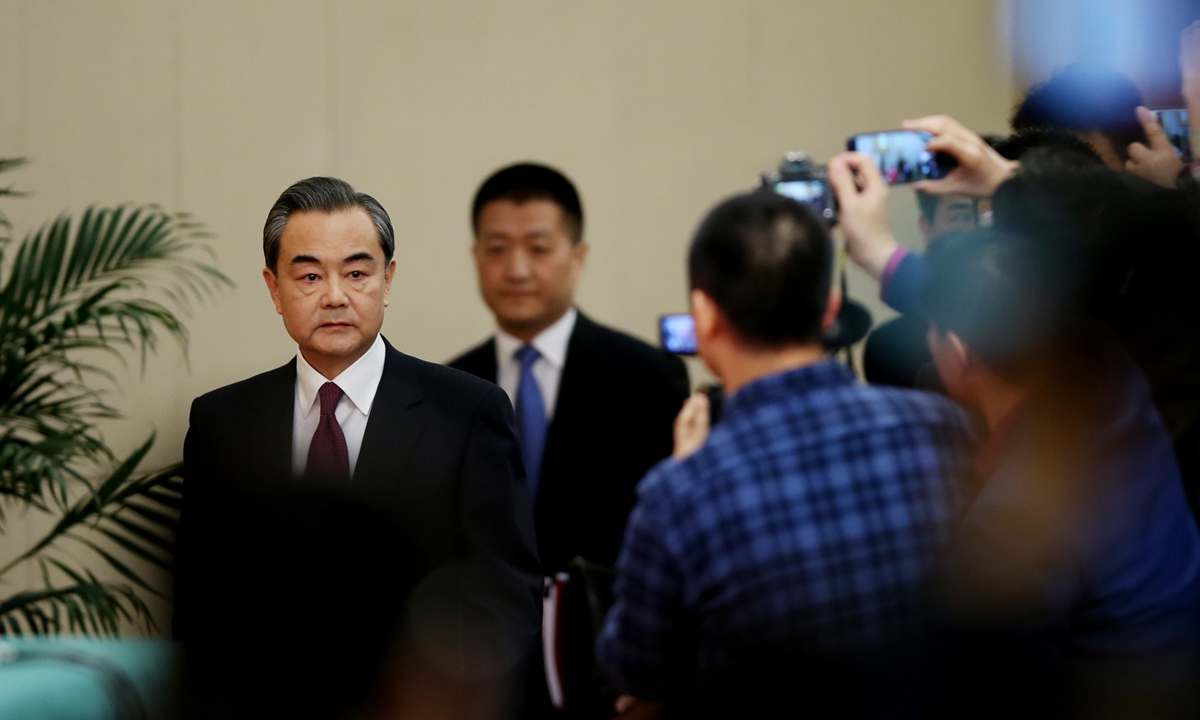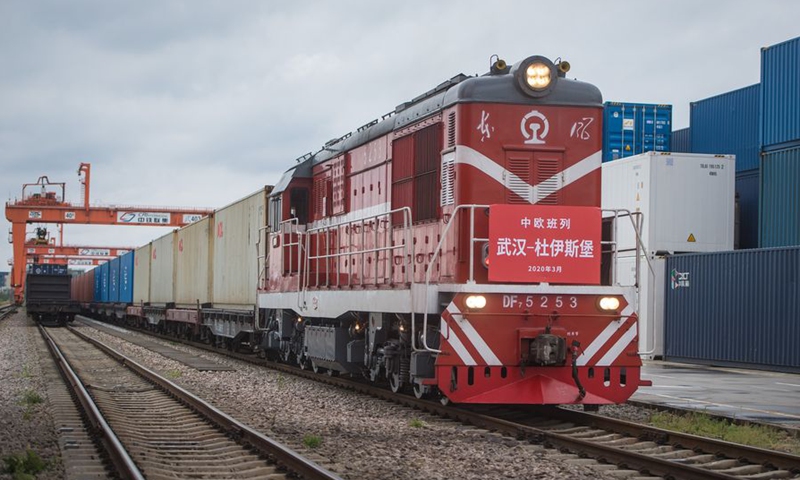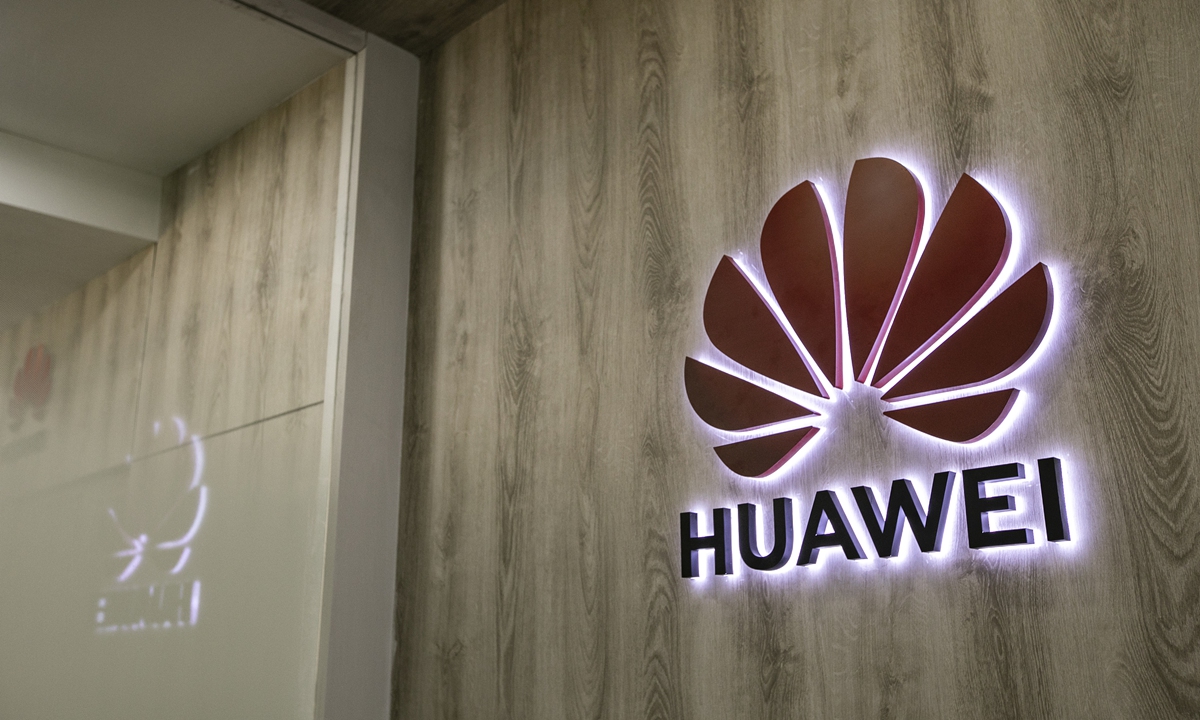Chinese FM's visit to France, Germany expected to promote independent biz decision-making
By Zhang Hui, Chi Jingyi and Ma Jingjing Source: Global Times Published: 2020/8/28 14:44:23 Last Updated: 2020/8/28 20:21:46

Chinese State Councilor and Foreign Minister Wang Yi File photo: Xinhua
Chinese Foreign Minister Wang Yi's visit to France and Germany - the "bellwethers" of the European Union (EU) that embrace globalization and strategic independence - will deepen the cooperation between China and the EU to jointly improve the global economy affected by the COVID-19 pandemic and the US' arbitrary unilateral sanctions, and help advance the China-EU Comprehensive Investment Agreement, which promotes multilateralism and free trade, Chinese analysts said.
Wang's visit comes amid the US' mounting pressure on the EU to ban Huawei from the region's 5G market and attempts to decouple from China, as Chinese analysts believe that France and Germany, the "big two" of the EU, will help other EU members make their own independent economic and political decisions, rather than succumbing to the US pressure.
French President Emmanuel Macron is set to meet with Wang on Friday at the Elysee Palace as part of the "strategic dialogue" between France and China, the president's office said. Wang will also meet his French counterpart Jean-Yves Le Drian on Saturday.
Wang's week-long Europe trip, his first overseas trip since the COVID-19 pandemic began, has also brought him to Italy, the Netherlands and Norway.
Chinese analysts said France and Germany are the "bellwethers" of the EU and represent the development direction and attitude of the region. The two countries will support other EU members in taking an independent diplomatic route despite pressure from the US.
Ding Chun, director of the Center for European Studies at Fudan University, told the Global Times that France and Germany - as two core countries in the EU - rely relatively less on the US.
In fact, Germany and France have recently stepped up their efforts to build a united EU, as reflected in the EU's recovery fund made available to members in the fight against the COVID-19 pandemic, according to Ding.
As French President Emmanuel Macron and German Chancellor Angela Merkel both have global strategic perspectives, it should be expected they will work with China to strengthen global coordination in support of the recovery of the world economy and global governance, while also stressing the need for multilateralism amid the US' unilateral sanctions and trade protectionism, Ding said.
European Commission President Ursula von der Leyen said that it's not possible to shape the world of tomorrow without a strong EU-China partnership, following the EU-China Summit that took place via videoconference in June.
Germany assumed presidency of the Council of the EU in July, after which time President von der Leyen said the next six months would be crucial, as it would, to a large extent, determine the future of the EU.
Wang's upcoming visit to Germany, less than two months after the start of Germany's EU presidency, will provide an opportunity for the EU to reshape future China-EU relations and redefine China; that is, whether China will be a partner of mutual achievement or a strategic rivalry and economic competitor, as perceived by last term's European Commission, Ding said.
China and the EU are long-term comprehensive strategic partners, not institutional competitors, Wang Yi said in June when attending a videoconference with the EU High Representative for Foreign Affairs and Security Policy, Josep Borrell.

A China-Europe freight train bound for Duisburg of Germany pulls out of the Wuhan terminal of China Railway Intermodal in Wuhan, central China's Hubei Province, March 28, 2020.File photo:Xinhua
Pragmatic cooperation
Wang's visit to France and Germany will help advance the negotiations of the China-EU Comprehensive Investment Agreement, as France and Germany have much greater say in the EU, analysts said.
In economic terms, Germany has been China's biggest trading partner among European countries for more than 40 years. China-Germany trade accounts for about 30 percent of China-EU trade.
During the 22nd China-EU leaders' meeting in June, China and the EU reaffirmed their commitments to achieve the agreement this year.
Chinese analysts said the agreement will provide an open, fair and transparent business environment for investors from both sides, and allow more European companies to share the "development dividends" of China.
The agreement will also send a strong signal that both parties are interested in maintaining multilateralism and free trade even as the US' "America First" campaign brings about unilateral sanctions on others, experts said.
Denis Depoux, Senior Partner, Global Managing Director and head of Asia of Roland Berger, told the Global Times that Europe is expecting the negotiations to be concluded this year. He also believes that there is a window of opportunity for China to welcome a new wave of international investment, particularly European investment.
In addition to the agreement, the China-Europe freight train service has shown that some countries remain intent on the resumption of work and production to revive the global economy. The China-Europe freight train service has demonstrated its safety and efficiency, expanded services and added routes this year, following the disrupting of global shipping by the COVID-19 pandemic.
Remain independent
Just before Wang's visit, US Secretary of State Mike Pompeo finished his tour to Central and East Europe. Pompeo's objectives of visiting the region included convincing countries in the EU to confront China and cut ties with Chinese tech giant Huawei.

Photo: VCG
Some foreign media have hyped up the so-called "anti-Huawei" force in the EU, after France followed the UK to require local operators to stop using Huawei by 2028.
However, Chinese analysts have suggested that European countries have so far held an ambiguous attitude toward Huawei, despite the US' pressure to impose a tough stance. More importantly, the "big two" of the EU, France and Germany, with their independent policies, may lead their fellow EU countries to make decisions based on their interests.
It's worth noting that the British and French "bans" on Huawei won't be enforced until after the US election in November this year. This may indicate the possibility for a U-turn, Xiang Ligang, a veteran telecom industry analyst in Beijing, told the Global Times.
"European countries have realized that the US has continued to ask them to cut ties with Huawei, but it cannot offer them any better replacement, meaning that there will be a delay in the construction of their 5G networks. However, the US does not care about its allies' interests," Xiang said.
Xiang said that Huawei still has lots of opportunities in Europe, and it's only a matter of time before such opportunities are realized.
In the context of a very aggressive American policy toward China, Denis Depoux said there's a window of opportunity for China to work with more of Europe and achieve a mutually beneficial situation for both Europe and China.
Several German and French companies in Suzhou, East China's Jiangsu Province, recently said they will not follow American companies in moving their production out of the Chinese mainland, and instead have looked to expand their business operations in China this year as they highly value China's huge market and promising economy.
They said the US is containing China due to its fear that China may threaten its dominant position in the world, however, European businesses are unlikely to succumb to US pressure or play the US' political game.
As one of the first French companies to enter China, cosmetic group L'Oréal told the Global Times in a written statement that it has been a witness, beneficiary and promoter of the development of China-EU relations over the decades, and China's business environment has only become better in recent years.
With the door of China opening wider and wider, our confidence in the Chinese market has become stronger than ever before, L'Oréal said.
According to a survey by the European Chamber in June, China remains in the top three investment destinations for more than 60 percent of respondents.
Posted in: DIPLOMACY